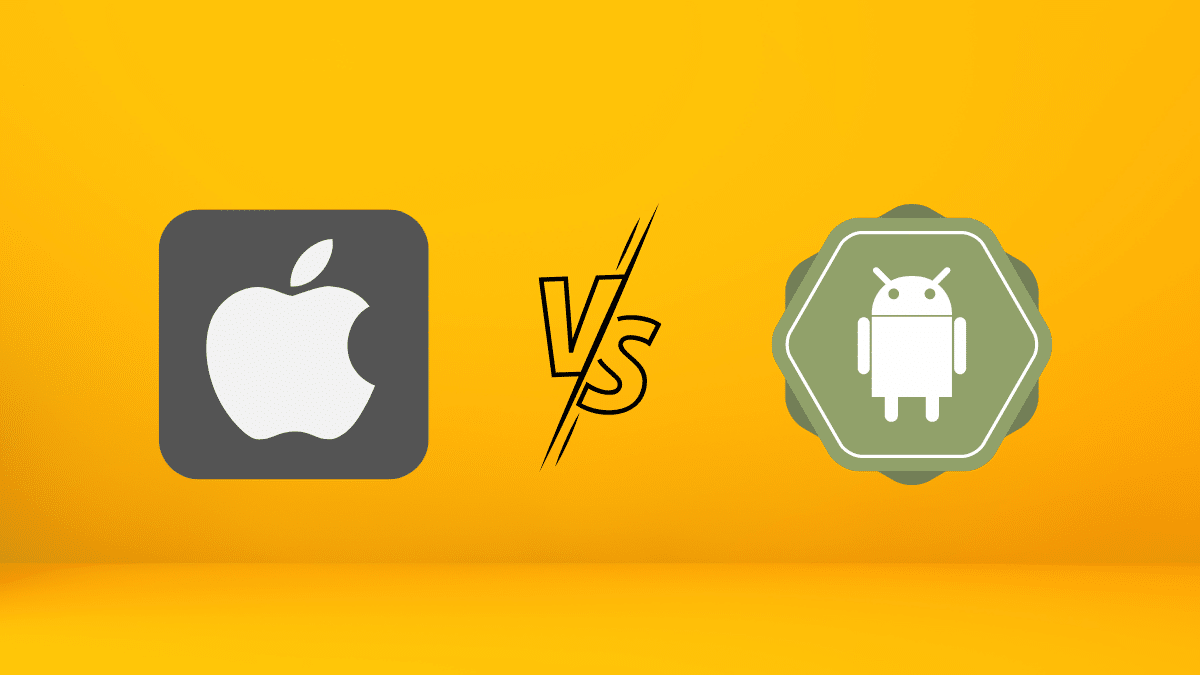Introduction
Apple and Android are the two most popular smartphone operating systems in the world. Choosing which to go with can be a difficult task because of all of their pros and cons. But this article aims to make it much easier for you to decide!
Apple vs Android: A History
The first smartphone was the Simon Personal Communicator, which was released in 1992. It used a touch screen and had basic features like a calendar, address book, and notepad. In 1996, the Palm Pilot 1000 was released, which was the first device to use a stylus. In 1999, BlackBerry released the first smartphone with email capabilities.
The first iPhone was released in 2007 and revolutionized the smartphone industry. It introduced features like a multitouch interface, App Store, and the camera that would become standard on all smartphones today. The first Android phone was released in 2008. It was not as successful as the iPhone at first but has since grown to be the most popular smartphone platform in the world.
Also Read: 3 Ways to Take Screenshots in Windows
Apple’s Pros: Ecosystem, Design, Security, and Support
When it comes to choosing a smartphone, there are two clear options: Apple or Android. But which is the better choice? Here, we pit the two against each other in four key areas: ecosystem, design, security, and support.
Ecosystem: Apple has a well-established ecosystem of apps and services that work seamlessly together. This includes features like iCloud, Apple Pay, and continuity between devices.
Design: Apple is known for making beautiful products, and the iPhone is no exception. It’s made with high-quality materials and craftsmanship.
Security: iPhone has built-in security features that protect your data and keep your device safe from malware and other threats.
Support: Apple provides excellent customer support through its Genius Bar program and online resources.
Android’s Pros: Customization, Availability, and Price
Android phones have a few advantages over Apple phones. One big advantage is that they are much more customizable than Apple phones.
Customization: One of Android’s most significant selling points is its high degree of customization. With Android, you can change just about everything, from the home screen layout to the icons to the colour scheme. This level of customization is simply not possible with iOS. If you want a truly unique smartphone experience, Android is the way to go.
Availability: Another advantage that Android has over iOS is availability. There are dozens of different manufacturers making Android phones, so you can find one that fits your specific needs and budget. In contrast, Apple only offers a handful of iPhone models. So if you’re looking for more choices, Android is the apparent winner.
Price: Finally, let’s talk about price. Generally speaking, Android phones are much cheaper than iPhones. You can find a great Android phone for under SAR 1,500, whereas an iPhone will typically set you back at least SAR 2,500.
Related Post: How to lock your Facebook profile for privacy
Apple’s Cons: Expensive, Proprietary, and Limited Storage
One of the most significant drawbacks of Apple devices is that they are often more expensive than their Android counterparts. Apple also uses a proprietary operating system, which means that you can only use apps and other software that are designed for iOS. And finally, Apple devices typically have less storage than Android phones, so you’ll have to be more selective about the apps and files you keep on your device.
Android’s Cons: Bloatware, Vulnerability to Malware, and Fragmentation
There are a few things to consider when it comes to Android vs Apple. One is bloatware. Bloatware is defined as “unwanted software that is pre-installed on a device by the manufacturer or carrier.” This can be a real pain if you’re trying to keep your device running smoothly. Many times, you can’t even uninstall this bloatware without rooting your device. And even then, it’s not always possible.
Another con of Android is its vulnerability to malware. Because Android is open source, there are more opportunities for malicious actors to create malware and release it onto the market. This can be a real problem if you’re not careful about what you download and install on your device.
Finally, Android suffers from fragmentation. This means that there are many different versions of the Android operating system out there, and they’re not all compatible with each other. This can be a real headache for developers, as they have to design their apps to work with multiple versions of Android. It can also be a pain for users, as some apps may not work with their particular version of Android.
Also Read: How to change your Wifi password and why you should
Which Is Better for You?
Apple’s main strength lies in its ecosystem. If you have an iPhone, you can also get an iPad, Macbook, and Apple Watch, and they will all seamlessly work together. Apple also offers excellent customer service and a wide range of high-quality apps. And, of course, there’s the iconic design. iPhones are sleek, stylish, and just plain cool.
Android’s main advantage is its flexibility. Android phones come in all shapes and sizes, from small budget models to huge flagship devices. And because Android is an open-source operating system, manufacturers can tweak it to their liking – meaning there’s more variety in the features and design you’ll find on an Android phone. Another big plus for Android is that it’s often cheaper than an iPhone.
Conclusion
So, which is better? Apple or Android? Ultimately, the choice is up to you and what you value most in a smartphone. If you’re looking for a phone that’s easy to use and has a lot of features, then an iPhone might be the best option for you. If you’re looking for a more affordable phone that gives you more freedom to customize your experience, then an Android might be the better choice.






